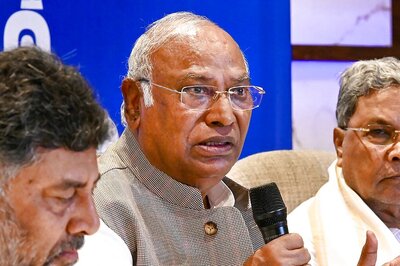
views
It is a common tendency for many of us to perceive the mind and body as distinct entities and, often, they are treated as isolated aspects. However, numerous studies underscore that these two facets are intricately linked and exert profound influences on each other in ways that surpass previous understanding. Hence, it is important to delve into not only the complex relationship between the mind and body but also examine how mental health influences physical health and the importance of nurturing this connection for a holistic approach to wellness. Dr Ashana Gupta, senior clinical psychologist at MediBuddy vHealth shares her input here.
The mind-body connection is bidirectional, meaning that our mental state can influence our physical health and our physical well-being can impact our mental health. Chronic stress, for example, can lead to physical symptoms such as headaches, muscle tension and digestive issues. On the other hand, individuals with chronic physical conditions may experience mental health challenges, including anxiety and depression.
The interplay between mental and physical health is evident in various aspects, showcasing a profound impact on overall well-being. Chronic stress, a key element, significantly influences the immune system, rendering individuals more susceptible to infections and illnesses. The stress hormones, particularly cortisol, exert their influence by suppressing immune function, underscoring a direct link between mental stress and physical health. Moreover, conditions such as anxiety and depression have been associated with an elevated risk of cardiovascular diseases, as the continuous activation of the stress response contributes to hypertension and inflammation affecting the heart and blood vessels. Mental health plays a significant role in shaping our perception of pain. For example, individuals grappling with depression may encounter heightened sensitivity to pain, while persistent pain conditions can contribute to the emergence of mental health disorders.
Establishing a healthy mind-body connection involves incorporating various strategies that seamlessly integrate mental and physical well-being. Practices such as mindfulness and meditation serve as powerful tools for stress management and inculcate a sense of calm by reducing stress hormones and promoting relaxation, effectively impacting both mental and physical health. Regular exercise, beyond its physical benefits, acts as a boon for mental health by releasing endorphins, the body’s natural mood enhancers, and effectively alleviating symptoms of anxiety and depression. Exercise also improves cardiovascular health, which in turn improves general well-being. Since a balanced diet is essential for both physical and mental well-being, it goes without saying that nutrition plays a critical role in preserving this relationship. In fact, a few key nutrients influence how the brain functions and help control mood. On the other hand, an inadequate diet can exacerbate physical illnesses and have a negative impact on mental health. It is also an established fact that laying the foundations for and then nurturing social connections is extremely important and the ability to do so is the function of improved mental and physical faculties in the broader context of holistic wellbeing.
Recognising the interconnected nature of mental and physical health is vital for healthcare providers as well. Adopting a holistic approach that considers both aspects can lead to more comprehensive and effective treatments and patient output. Attaining longevity and optimal health requires recognising and fostering this symbiotic link. Knowing the significant impact mental health has on physical health helps us make decisions that will benefit our whole selves as we manage the challenges of contemporary life. It is time that we wholeheartedly embrace integrative healthcare models, which combine traditional and complementary therapies, to not only address mental and physical health together but also to cultivate a strong mind-body connection that enhances our ability to contribute to a more resilient and vibrant existence.




















Comments
0 comment